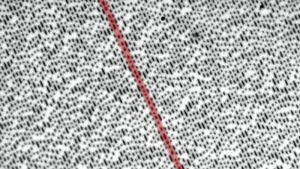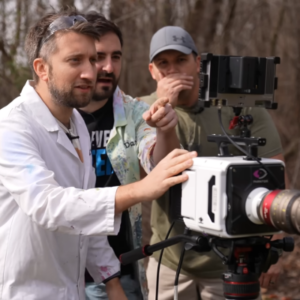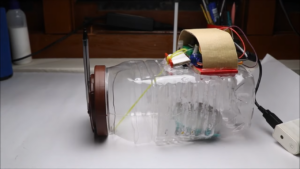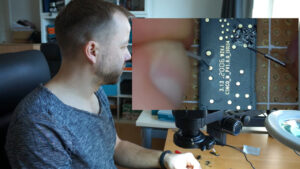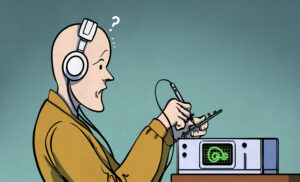
In a recent blog post, [Benjamin Breen] makes an interesting case that 2023 might go down in history as the start of a scientific revolution, and that’s even if LK-99 turns out to be a dud. He points to several biomedical, quantum computing, and nuclear fusion news items this year as proof.
However, we aren’t as convinced that these things are here to stay. Sure, LK-99 was debunked pretty quickly, but we swim in press releases about new battery technologies, and new computer advances that we never hear about again. He does mention that we aren’t alone in thinking that as [Tyler Cowen] coined the phrase “Great Stagnation” to refer to the decline in disruptive tech since 1945. Still, [Benjamin] argues that people never know when they live through a scientific revolution and that the rate of science isn’t as important as the impact of it.
That makes sense. Who cares if you develop 100 new ways to make resistors every year? But develop a transistor, and you change everything. To make his case, [Benjamin] points to [Robert Boyle], the famous scientist from the 1660s. Actually, we should call him a natural philosopher since the word scientist wasn’t in use in the 1660s. He had a list of things science should develop. [Benjamin] took the liberty of marking how many of these we have now. Some of these are obvious, and we have them. Flying, for example. Some things we don’t really have, like “curing wounds at a distance.” Unless you count telemedicine, but we don’t think that’s what he meant.
Some of the items, though, are puzzling. The final item on the handwritten list reads, “Varnishes perfumable by rubbing.” We suppose you could consider this “scratch and sniff,” but why would [Boyle] be interested in this and put it on the same list as flight, perpetual light, and optical lenses?
[Breen] points out that while [Boyle] was a famous scientist, his wish list didn’t include things like the telegraph or the steam engine. While he didn’t know it, he lived on the cusp of a great scientific age.
But are we living through the same sort of fundamental changes now? Everyone says yes. Quantum computers and AI will change everything. But then, they said that about the Segway, memristors, and blockchain, too. But we do agree that we don’t know what the next big thing is until after it has been here a while.
Predicting the future is always precarious, though we still try. In fact, apparently, people really want telemedicine.
- SEO Powered Content & PR Distribution. Get Amplified Today.
- PlatoData.Network Vertical Generative Ai. Empower Yourself. Access Here.
- PlatoAiStream. Web3 Intelligence. Knowledge Amplified. Access Here.
- PlatoESG. Automotive / EVs, Carbon, CleanTech, Energy, Environment, Solar, Waste Management. Access Here.
- PlatoHealth. Biotech and Clinical Trials Intelligence. Access Here.
- ChartPrime. Elevate your Trading Game with ChartPrime. Access Here.
- BlockOffsets. Modernizing Environmental Offset Ownership. Access Here.
- Source: https://hackaday.com/2023/08/11/a-little-bit-of-science-history-repeating-itself-boyles-list/
- :has
- :is
- 100
- 2023
- a
- About
- actually
- advances
- After
- again
- age
- AI
- alone
- always
- an
- and
- ARE
- Argues
- AS
- At
- battery
- BE
- been
- Benjamin
- Big
- biomedical
- Bit
- blockchain
- Blog
- but
- by
- call
- case
- change
- Changes
- coined
- computer
- computers
- computing
- Consider
- convinced
- could
- Cusp
- Decline
- develop
- disruptive
- distance
- do
- does
- Dont
- down
- Engine
- Even
- Every
- everyone
- everything
- example
- fact
- famous
- final
- flight
- flying
- For
- from
- fundamental
- fusion
- future
- great
- had
- Have
- he
- hear
- here
- him
- his
- history
- How
- HTTPS
- if
- Impact
- important
- in
- include
- interested
- interesting
- IT
- items
- itself
- Know
- lenses
- Liberty
- light
- like
- List
- little
- live
- living
- make
- MAKES
- many
- marking
- meant
- mention
- might
- Natural
- never
- New
- news
- next
- now
- nuclear
- Nuclear fusion
- obvious
- of
- on
- or
- out
- People
- Perpetual
- plato
- Plato Data Intelligence
- PlatoData
- points
- Post
- press
- Press Releases
- pretty
- proof
- put
- Quantum
- quantum computers
- quantum computing
- quickly
- Rate
- really
- recent
- Releases
- Revolution
- ROBERT
- Said
- same
- says
- Science
- scientific
- Scientist
- sense
- several
- should
- since
- some
- start
- stay
- Steam
- Still
- sure
- tech
- Technologies
- telemedicine
- that
- The
- The Future
- Them
- then
- These
- they
- thing
- things
- think
- Thinking
- this
- this year
- though?
- Through
- to
- too
- took
- turns
- tyler
- until
- use
- want
- was
- ways
- we
- What
- when
- while
- WHO
- why
- will
- Word
- would
- wounds
- year
- yes
- you
- zephyrnet


